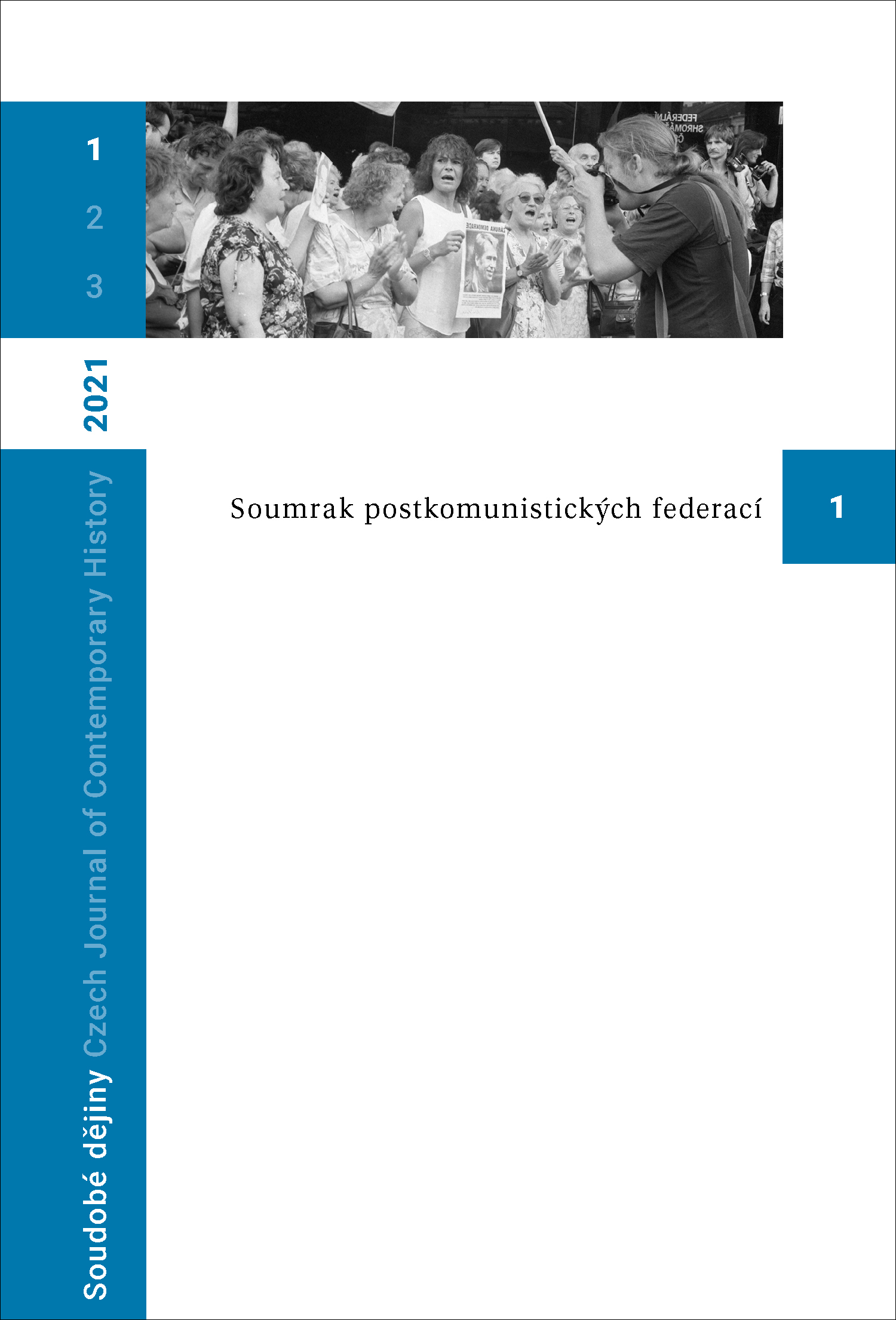Vládnout s expertním nadhledem
Ruling with an Expert's Detached View
Author(s): Martin FrancSubject(s): Social Sciences, History of ideas, Political history, Social history, Post-War period (1950 - 1989), Transformation Period (1990 - 2010), History of Communism, Post-Communist Transformation, Book-Review
Published by: AV ČR - Akademie věd České republiky - Ústav pro soudobé dějiny
Keywords: Czechoslovakia;experts;expert thinking;management;governance;technocracy;state socialism;post-Stalinism;Czechoslovak normalization;post-socialism;historical continuity;psychotherapy;sociology;ecology
Summary/Abstract: The third reflection of two collective monographs dealing with similar topics – "Řídit socialismus jako firmu: Technokratické vládnutí v Československu, 1956–1989 [Running Socialism Like a Company: Technocratic Governance in Czechoslovakia,1956–1989] (Prague: Nakladatelství Lidové noviny and Ústav pro soudobé dějiny AV ČR, v. v. i., 2019) by Vítězslav Sommer and his two co-authors, and "Architekti dlouhé změny: Expertní kořeny postsocialismu v Československu [Architects of the Long Change: Expert Roots of Post-Socialism in Czechoslovakia] (Prague: Argo, Filozofická fakulta Univerzity Karlovy, and Ústav pro soudobé dějiny AV ČR, v. v. i., 2019) written by a team of authors under the leadership of the book’s editor, Michal Kopeček – starts with the reviewer’s sigh reflecting his difficult task, as he has no other option but to praise both books, which do not contain any factual errors. In his opinion, the publication "Running Socialism Like a Company", which focuses mainly on the evolution of technocracy in socialist Czechoslovakia is more compact and somewhat more gripping. He highly appreciates the authors’ effort to link technocratic thinking of the second half of the 1950s to remarkable and not much explored technocratic reflections dating back to the pre-war republic, as well as their convincing interpretations of the transformation of visions of expert management of the 1960s to practical applications of so-called social planning, a tool to rule the depoliticized society, and concepts of “socialist enterprise” in the next two decades of the normalization. The authors’ warning against technocratic populism, which highlights successful businessmen as experts who can manage public matters better than democratic politicians is very topical in today’s context. The "Architects of the Long Change" team is probing an even less explored field, pursuing the topic of experts in selected areas of their social activities during the transition from the Czechoslovak normalization period to the 1990s. The reviewer was particularly captured by case histories from specific fields of expertise, such as psychotherapy, sociology, urbanism, and ecology. In the reviewer’s opinion, both books are excellent proof positive that the Czech historiography of contemporary history can produce superb works bearing international comparison.
Journal: Soudobé Dějiny
- Issue Year: XXVIII/2021
- Issue No: 1
- Page Range: 232-239
- Page Count: 8
- Language: Czech

